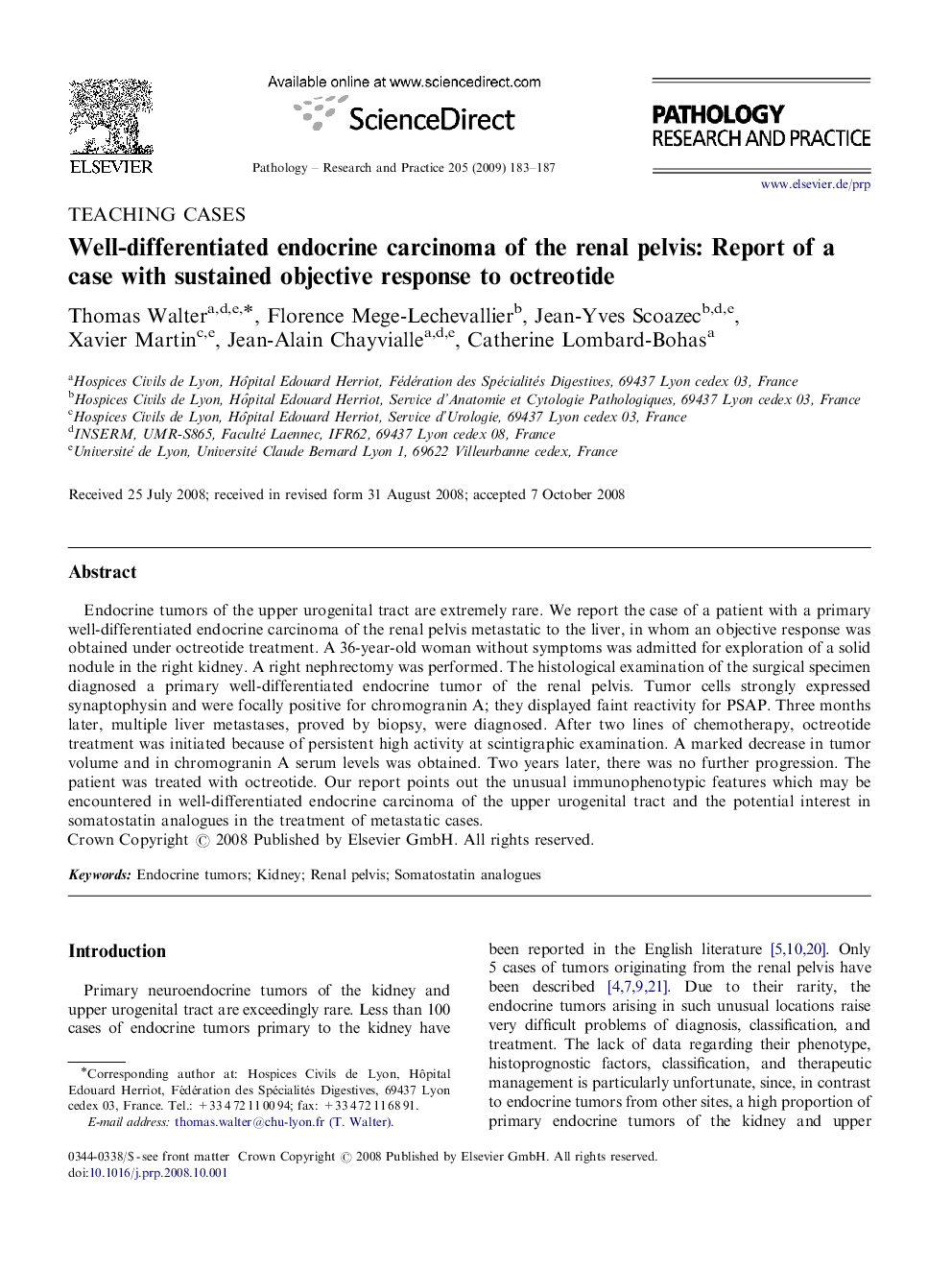| Article ID | Journal | Published Year | Pages | File Type |
|---|---|---|---|---|
| 2156481 | Pathology - Research and Practice | 2009 | 5 Pages |
Abstract
Endocrine tumors of the upper urogenital tract are extremely rare. We report the case of a patient with a primary well-differentiated endocrine carcinoma of the renal pelvis metastatic to the liver, in whom an objective response was obtained under octreotide treatment. A 36-year-old woman without symptoms was admitted for exploration of a solid nodule in the right kidney. A right nephrectomy was performed. The histological examination of the surgical specimen diagnosed a primary well-differentiated endocrine tumor of the renal pelvis. Tumor cells strongly expressed synaptophysin and were focally positive for chromogranin A; they displayed faint reactivity for PSAP. Three months later, multiple liver metastases, proved by biopsy, were diagnosed. After two lines of chemotherapy, octreotide treatment was initiated because of persistent high activity at scintigraphic examination. A marked decrease in tumor volume and in chromogranin A serum levels was obtained. Two years later, there was no further progression. The patient was treated with octreotide. Our report points out the unusual immunophenotypic features which may be encountered in well-differentiated endocrine carcinoma of the upper urogenital tract and the potential interest in somatostatin analogues in the treatment of metastatic cases.
Related Topics
Life Sciences
Biochemistry, Genetics and Molecular Biology
Cancer Research
Authors
Thomas Walter, Florence Mege-Lechevallier, Jean-Yves Scoazec, Xavier Martin, Jean-Alain Chayvialle, Catherine Lombard-Bohas,
